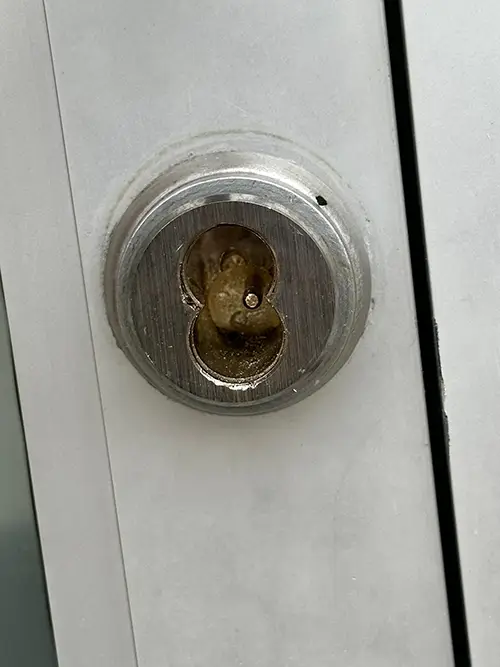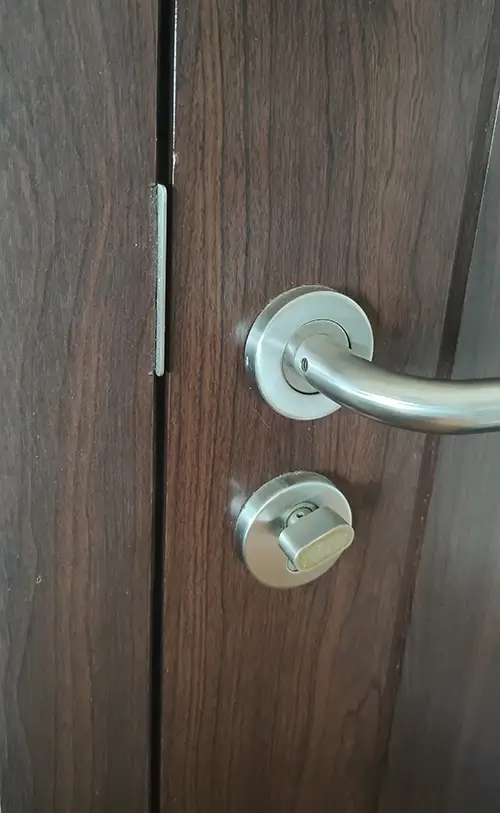 A locksmith skillfully manipulates and fixes tools that safeguard our most prized items, including locks and keys, and is frequently regarded as a modern-day artisan. Their technical skills go beyond just being able to replace locks and unlock doors in an emergency. They provide a variety of services, including key duplication, lock replacement, and key repair, highlighting their crucial role in preserving security.
A locksmith skillfully manipulates and fixes tools that safeguard our most prized items, including locks and keys, and is frequently regarded as a modern-day artisan. Their technical skills go beyond just being able to replace locks and unlock doors in an emergency. They provide a variety of services, including key duplication, lock replacement, and key repair, highlighting their crucial role in preserving security.
As a little but crucial instrument in assuring safety and access, keys are essential to our daily lives. From basic mechanical ones to sophisticated electronic ones, they provide a sense of security, uphold our privacy, and simplify our daily activities.
However, they are susceptible to wear and tear, much like any item used on a regular basis. Due to overuse or excessive force, keys can eventually shatter, causing unfavorable disruptions.
Therefore, can a locksmith fix a damaged key? The answer is definitely yes. Locksmiths can expertly extract a broken key from its lock and make a replacement after receiving significant training and years of hands-on experience. To ensure that the new key works flawlessly, painstaking copying procedures and the use of specialized locksmithing equipment are used during the key repair process.
It's important to understand, though, that not all broken keys can be fixed. Replacement is frequently more feasible than repair when a key has considerable damage, is beyond repair, or has intrinsic faults. However, a skilled locksmith can expertly lead you through this process, swiftly regaining the functioning of your lock and your peace of mind.
Locksmiths perform a crucial role in key repair. With this knowledge, you can tackle unforeseen key damages with renewed assurance and preparation since you know there is a fix available.
In What Scenarios Would a Locksmith Need to Break Your Lock?
Although locksmiths are knowledgeable experts proficient at non-destructive techniques of unlocking, some circumstances necessitate forced access. Let's look at the kinds of locks that can need such assistance, the situations that call for it, and how locksmiths limit damage.
Certain locks might require forceful entry because of their intricate design or sophisticated security mechanisms. For example, high-security locks are made to defy standard locksmithing methods, making it more difficult to open them without causing damage. Similar to this, heavily broken or jammed locks might call for a more direct strategy.
Forced entrance is typically required in emergency situations or when all other non-destructive measures have failed. Extreme crises like a youngster trapped in a room or a sudden need for access to life-saving medication are only two examples. Non-destructive techniques could also be unsuccessful if a lock is severely worn out, rusty, or broken.
A skilled locksmith stresses minimizing damage in these circumstances, though. Their skilled eye can spot the entrance that will do the least amount of damage. If a lock needs to be drilled, for instance, they will aim for a location where the lock can be changed without harming the door. Their arsenal of tools also enables them to carry out forcible entrances with accuracy and control, minimizing potential injury.
In conclusion, even though breaking a lock is typically the final option, it occasionally becomes necessary due to specific circumstances and lock types. Professional locksmiths, on the other hand, are cautious to minimize damage while quickly fixing the problem. For the best course of action in lock-related emergencies, always consult a reliable locksmith.
The Importance of Hiring a Certified Locksmith for Precise Lock Fixing
It is increasingly important to use a licensed professional locksmith in situations where they have no choice but to break the lock. Experience and certifications are evidence of a locksmith's proficiency in solving even the most complex lock-related problems.
A locksmith who holds a certification has likely undergone considerable training, is knowledgeable about the newest security systems, and abides by industry standards. On the other hand, experience suggests a track record of handling a variety of circumstances, even those when breaching the lock becomes unavoidable.
In these critical situations, choosing an unscrupulous or inept locksmith might have serious consequences. This could involve overcharging you, damaging your property as a result of insufficient knowledge, or even security breaches brought on by careless management of your lock information. In the worst-case scenario, this can open the door to theft or fraud.
Researching a dependable locksmith is important. Look up nearby locksmith companies online, read customer reviews, and verify their insurance, bonding, and license status. Before hiring a locksmith, get referrals from people you can trust and check out their qualifications.
Certified locksmiths offer a wide range of services in terms of repair and replacement options. A locksmith can restore a broken lock that is still usable while preventing future damage. However, they can help you navigate several lock replacement options if the lock is beyond repair or if you want to increase security.
Financial constraints frequently influence the decision between repair and replacement. Even though replacement can offer a more long-lasting solution, repairs might be more cost-effective in the near term, especially if the lock is old or severely damaged.
In conclusion, employing a licensed locksmith guarantees that your lock will be fixed precisely, even if it is broken. A trustworthy locksmith provides the most efficient and cost-effective solution for maintaining the security of your property, whether it's maintenance or replacement.
How Misinformation About Locksmith Practices In Terms of Breaking Locks Can Cause Unwarranted Worries
 It's crucial to dispel certain widespread myths in our quest to comprehend locksmith techniques, especially the one that locksmiths always break locks. Misinformation can cause unfounded concerns, making you hesitant to choose a reputable locksmith.
It's crucial to dispel certain widespread myths in our quest to comprehend locksmith techniques, especially the one that locksmiths always break locks. Misinformation can cause unfounded concerns, making you hesitant to choose a reputable locksmith.
One common misconception is that locksmiths only break locks as a last resort. But nothing could be further from reality than this idea. Modern locksmithing techniques place a strong emphasis on keeping locks intact whenever possible. These experts are prepared with a variety of tools, including lockpicking, bumping, and impressioning, to make sure that picking a lock remains a last resort and is only used in specific, unavoidable circumstances.
These fallacies, together with the general lack of knowledge about the locksmith industry, can give rise to unwarranted worries.
People worry about possible harm, financial repercussions, and a perceived lack of security, but these worries are largely baseless when working with licensed, skilled locksmiths. We can promote a more accurate knowledge of locksmith services by dispelling these myths.
To sum up, it's important to underline the fundamental commitment of expert locksmiths: maintaining the performance of your lock while offering effective access solutions. They seek to maximize security while minimizing inconvenience and expense. And when breaking a lock is the only option, they do so with the utmost caution while always taking your needs and price range into account when evaluating repair or replacement choices.
Don't let false information influence your choices. In the event of a lock-related emergency, contact a reputable, licensed locksmith. They offer not only technical know-how but also peace of mind because they handle your locks with accuracy, respect, and dedication to your security.




